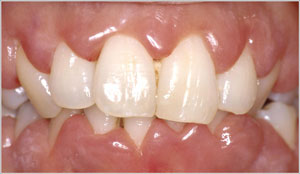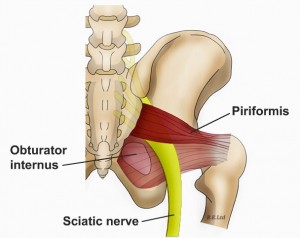Why do pregnant women get leg cramps? If you’ve been pregnant, you might be familiar with those sudden, sharp pains in your legs that often come in the middle of the night. Leg cramps during pregnancy are incredibly common, affecting about 30-50% of expectant mothers. But why do they happen, and more importantly, what can you do about them?
The exact cause of leg cramps during pregnancy isn’t fully understood, but there are several contributing factors. Changes in circulation, increased pressure on blood vessels due to the growing baby, and fluctuations in mineral levels all seem to play a part. Muscle fatigue from carrying extra weight can also make these cramps more frequent, particularly during the second and third trimesters.
Magnesium: The Mineral That Might Help
Can magnesium help with pregnancy leg cramps? Yes, it might! Magnesium is a mineral that plays a crucial role in muscle function, including helping muscles relax. It’s been widely discussed in both scientific literature and prenatal circles as a potential remedy for leg cramps.
Research supports magnesium as a helpful supplement for pregnant women experiencing leg cramps. A 2017 study published in the American Journal of Obstetrics and Gynecology found that pregnant women who took magnesium supplements reported a significant decrease in the frequency and intensity of their leg cramps compared to those who did not (source). This effect is believed to come from magnesium’s ability to help muscles relax and reduce excessive nerve excitability.
Did you know?
Magnesium is involved in over 300 biochemical reactions in the body, many of which help muscles function and relax properly.
Forms of Magnesium: Which One Should You Choose?
There are different forms of magnesium supplements available, including magnesium citrate, magnesium oxide, and magnesium glycinate. Magnesium citrate and magnesium glycinate are often preferred due to their higher absorption rates, meaning they are more readily used by the body. Magnesium oxide, while more commonly available and less expensive, tends to have a lower absorption rate and is also associated with more digestive side effects, like diarrhea.
| Magnesium Form | Absorption Rate | Average Cost per Bottle |
|---|---|---|
| Magnesium Citrate | High | $10-$15 |
| Magnesium Glycinate | High | $12-$18 |
| Magnesium Oxide | Low | $5-$8 |
Is It Safe to Take Magnesium Supplements During Pregnancy?
Is magnesium safe for pregnant women? Generally, yes. Magnesium is an essential mineral, and getting enough of it is crucial for both mom and baby. However, taking magnesium supplements should always be done under the guidance of a healthcare professional. The recommended daily intake (RDI) of magnesium for pregnant women is 350-400 mg per day, which can usually be met through diet or a prenatal vitamin.
Forms of Magnesium and Side Effects: Digestive Issues Frequency| Magnesium Form | Frequency of Digestive Issues (%) |
|---|---|
| Magnesium Citrate | 30% |
| Magnesium Glycinate | 15% |
| Magnesium Oxide | 50% |
This histogram shows the frequency of digestive issues, such as diarrhea, associated with different forms of magnesium supplements. Magnesium oxide is associated with the highest frequency of digestive issues, while magnesium glycinate tends to be the gentlest on the stomach.
Foods rich in magnesium include leafy green vegetables, nuts, seeds, whole grains, and legumes. If you prefer dietary sources over supplements, adding magnesium-rich foods to your diet can help support muscle relaxation and may reduce cramping.
Did you know?
Spinach, pumpkin seeds, and almonds are some of the richest dietary sources of magnesium, offering about 150 mg of magnesium per serving.
Effectiveness of Magnesium in Reducing Leg Cramps During Pregnancy
| Period of Intake | Frequency of Leg Cramps (per week) |
|---|---|
| Without Magnesium | 8 |
| After 2 Weeks of Magnesium | 5 |
| After 4 Weeks of Magnesium | 3 |
This histogram shows the effectiveness of magnesium in reducing the frequency of leg cramps during pregnancy. The number of leg cramps decreases significantly after consistent magnesium intake over several weeks.
Other Ways to Prevent Leg Cramps During Pregnancy
Is magnesium the only solution? Not at all! There are several other things you can do to prevent or reduce the frequency of leg cramps:
- Stay Hydrated: Dehydration is a common trigger for muscle cramps. Make sure you are drinking enough water throughout the day.
- Stretch Before Bed: Simple calf stretches before going to bed can help relax the muscles and prevent nighttime cramping.
- Stay Active: Light exercise like walking can improve circulation and help keep muscles relaxed. (Note: Always avoid high-impact or intense workouts without consulting your doctor.)
- Adequate Calcium and Potassium: These minerals work alongside magnesium to maintain muscle function. Bananas, dairy products, and fortified cereals are good sources.
Did you know?
Staying hydrated can reduce the occurrence of leg cramps by up to 50%, according to a 2020 study by the Journal of Maternal-Fetal & Neonatal Medicine.
Common Minerals for Preventing Leg Cramps During Pregnancy
| Mineral | Percentage of Pregnant Women Reporting Improvement (%) |
|---|---|
| Magnesium | 75% |
| Potassium | 50% |
| Calcium | 60% |
This histogram shows the effectiveness of common minerals such as magnesium, potassium, and calcium in preventing leg cramps during pregnancy. Magnesium appears to be the most effective mineral, with the highest percentage of pregnant women reporting improvement.
Our Editorial Team’s Advice
If you’re struggling with leg cramps during pregnancy, magnesium could be a game-changer for you, but it’s not a one-size-fits-all solution. Speak with your healthcare provider before starting any supplements, and try to incorporate magnesium-rich foods into your diet first. Remember, every pregnancy is unique, and what works for one person may not be ideal for another. Staying hydrated, stretching regularly, and getting enough key minerals will help keep those pesky leg cramps at bay.









